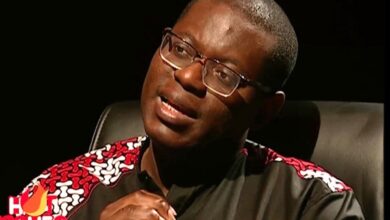TUC Welcomes ICJ Hearings on Right to Strike, Says Ghana’s Labour Unrest Underscores Its Importance

The Trades Union Congress (TUC-Ghana) has commended the International Court of Justice (ICJ) for holding public hearings on whether the right to strike is protected under international labour law — a matter it says strikes at the very heart of fairness and dignity at work.
The hearings, which took place from October 6 to 8, 2025, at The Hague, focused on interpreting the International Labour Organization’s (ILO) Convention No. 87 on Freedom of Association and the Protection of the Right to Organize.
For the TUC, the ICJ’s deliberations could not have come at a more fitting time. Across Ghana, industrial tensions have been rising from nurses and doctors demanding better conditions, to teachers, local government staff, and factory workers either on strike or threatening to walk out over unpaid allowances, delayed salary adjustments, and slow wage negotiations.
To many citizens, strikes often mean long queues, halted services, and daily inconvenience. But according to TUC General Secretary Joshua Ansah, they represent much more than protest. “The right to strike is a tool of last resort for workers to demand fairness when dialogue fails,” he said. “Every decent wage and benefit we enjoy today was won because some workers, in the past, had the courage to take that stand.”
During the ICJ hearings, representatives from 18 countries and five international organizations presented arguments on whether the right to strike is inherent in Convention 87. Speaking for the International Labour Organization, Legal Adviser Tomi Kohiyama highlighted that the ILO’s tripartite structure — bringing together governments, employers, and workers — gives its conventions unique legitimacy. She said the Court’s opinion would bring much-needed legal clarity to global labour relations.
Representing the International Trade Union Confederation (ITUC) was Ghana’s own Paapa Danquah, former Legal Director of TUC Ghana. He made a strong case that strikes are a fundamental tool for defending workers’ rights and human dignity. “Not everyone has gone on strike,” he said, “but we are all beneficiaries of those who did.” Danquah reminded the Court that rights such as the eight-hour workday, maternity leave, and paid holidays were achieved through workers’ collective action.
TUC Ghana praised the ITUC’s representation and commended African governments — including South Africa, Egypt, Mauritius, and Somalia — for defending the right to strike before the Court. Their stance, it said, reflects Africa’s deep commitment to justice, solidarity, and democracy in the workplace.
With labour disputes increasingly common across Ghana, the TUC expressed hope that the ICJ’s opinion will reinforce the principle that strikes are not acts of rebellion but legitimate expressions of workers’ demand for dignity. “When workers take to the streets, it’s not to cause trouble,” one union representative said. “It’s because their pleas for fairness have gone unheard.”
The ICJ’s advisory opinion is expected in the coming months, and unions worldwide are watching closely. For Ghana’s TUC, a global affirmation of the right to strike would send a clear message to employers and governments alike — that lasting social peace is achieved not by silencing workers, but by listening to them.
As Mr. Ansah summed it up, “A strike is never the goal. It is the cry of workers when dialogue is ignored. When the right to strike is respected, it means the right to fairness, to negotiation, and to dignity at work.”




